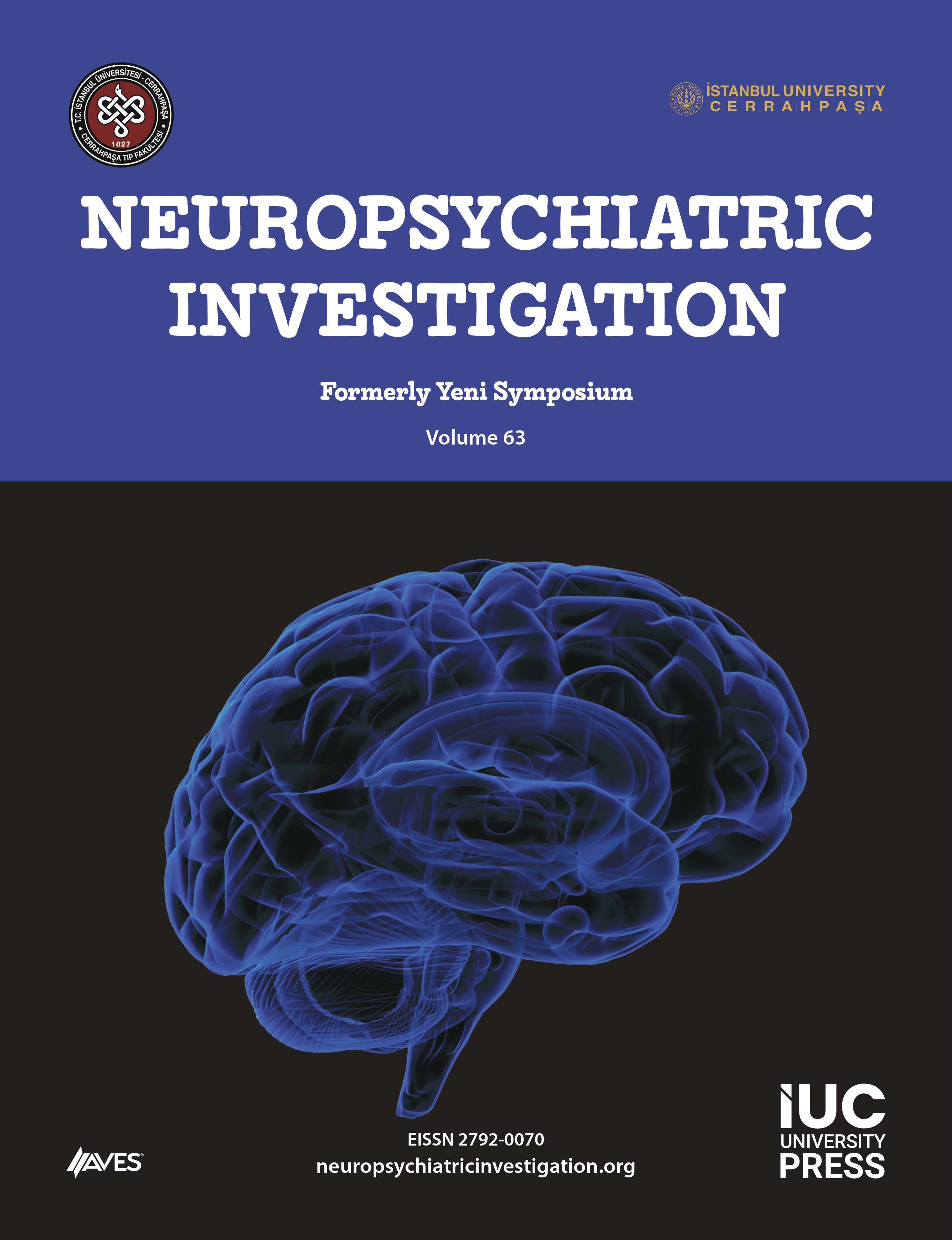Objective: The course of patients with obsessive-compulsive disorder (OCD) has attracted particular concern during the COVID-19 pandemic because measures to prevent the spread of COVID-19 coincide with OCD symptoms. Cognitive flexibility, which refers to the ability to adapt to changing conditions, may be a possible mechanism explaining the impact of the pandemic, considering it has been shown to be an executive function abnormality in OCD. We aimed to explore the course of OCD during the COVID-19 pandemic and the impact of cognitive flexibility on the changes in patients’ symptomatology.
Methods: The course of symptoms in 81 OCD patients during the pandemic was evaluated retrospectively with a clinician-developed data form. The Cognitive Flexibility Scale was used to assess cognitive flexibility. The Yale-Brown Obsessive-Compulsive Scale, the Fear of COVID-19 Scale, the Hamilton Anxiety Scale, and the Hamilton Depression Scale were also administered.
Results: We found that 68.1% of patients reported worsening. Patients with worsening symptoms had a higher fear of COVID-19. Levels of cognitive flexibility, anxiety, or depression did not differ between the patients with and without worsening. However, patients who reported more severe worsening had lower cognitive flexibility and greater levels of anxiety and depression than those with milder ones.
Conclusion: Our study reveals the deterioration in OCD patients during the COVID-19 pandemic and indicates the role of cognitive inflexibility in worsening symptoms.
Cite this article as: Dokuz G, Kanlı Ş, Bulçak A, Boylu ME, Dönmez Z, Kırpınar İ. Symptom changes in patients with obsessive-compulsive disorder during the COVID-19 pandemic: the impact of cognitive flexibility. Neuropsychiatr Invest. 2025, 63, 0013, doi: 10.5152/ NeuropsychiatricInvest.2024.24013.




.png)